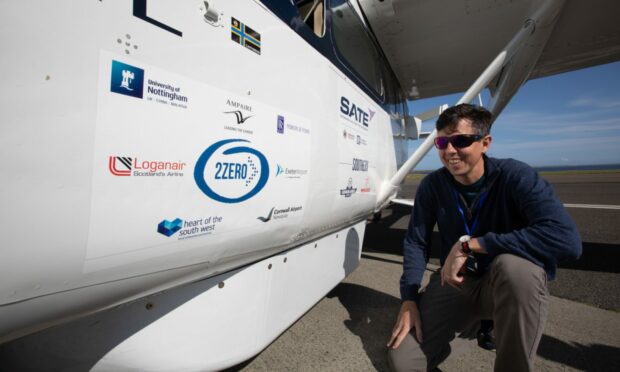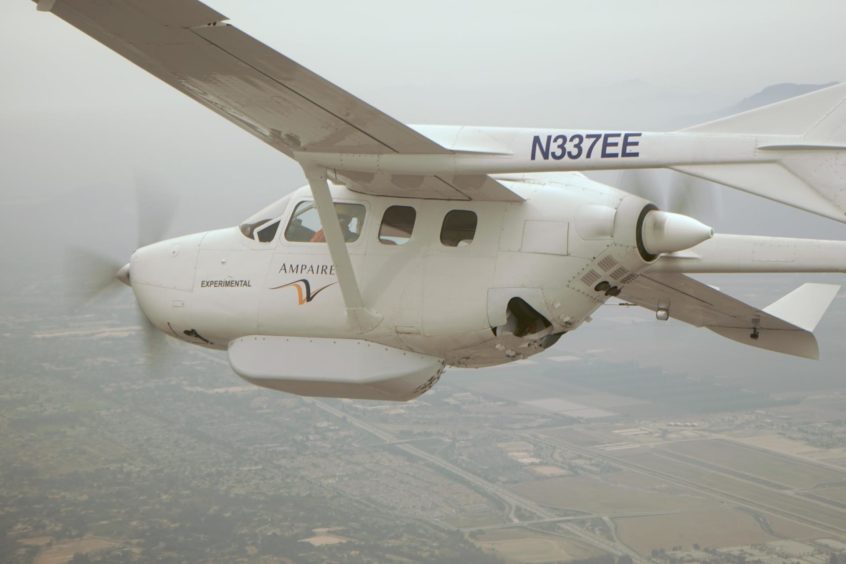The second phase of a world-leading low emissions aviation project will create 45 jobs – and greener flights.
Orkney’s Sustainable Aviation Test Environment (Sate) project has received £8.9million funding for the second stage of its project from UK Research and Innovation (UKRI).
As part of the project, a drone will fly between Orkney and Norway and a first hydrogen-propelled regional-aircraft flight will take place.
It is hoped the project, based at Kirkwall Airport, will be become a centre of excellence for low emission aviation in the UK.
The first stage of the project, led by Highlands and Islands Airports Limited (Hial) focused on establishing the test centre.
Innovative pioneers
The second phase of funding, confirmed today, is all set to deliver scheduled airline routes, provide services to the offshore industry, work with the NHS and make deliveries to islands and remote regions by drone.
Last year the project made history when a hybrid aircraft flew between Orkney and Wick.
Hial chairwoman Lorna Jack, said: “Phase two of the Sate project will allow all the partners to really drive forward a range of low-carbon services and technologies that will have a tangible benefit to communities in the Highlands and Islands and beyond.
“Sate also plays a key role in delivering Hial’s environmental objective to decarbonise our operations and our long-term vision to become a net-zero carbon regional airport group.”
“We continue with our aim for all 11 of our airports to be carbon neutral as we strive to deliver an environmentally sustainable future for aviation services.”
The project will operate for a 24-month period.
Sustainable aviation
Six roles have been created by Hial to manage the project, and it is estimated at least 45 highly skilled jobs will be created, 30 of which will be within Windracers drone project.
Gary Cutts, Future Flight challenge director at UKRI, said: “The world is on a journey towards net zero and it is vital that the aviation industry is not left behind.
“In phase two of the Future Flight challenge, we have supported the – project Sate consortium in creating the UK’s first low-carbon aviation test centre.
“Now, with this extra funding, we look forward to seeing how Sate two develops into a UK centre of excellence for sustainable aviation systems.”
The funding for the project will allow for the Sate project to create the UK’s first low-carbon aviation test centre embedded at a commercial airport.
What has the project achieved so far?
Sate was launched in November 2020. During the last 21 months the project has seen some pioneering sustainable aviation technology demonstration flights delivered, including:
- a successful collaboration between drone specialist technology firm Windracers with Royal Mail on autonomous flights
- demonstrations of Flare Bright’s parcel-sized gliding drone system
- the first hybrid electric flights for Scotland pioneered by Ampaire
- dedicated hangar facilities and office space have also been created at Kirkwall Airport.


Conversation